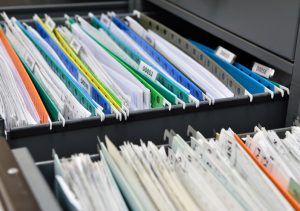In her 2020 report into the ATO’s systems and processes for dealing with deceased estates [1], the Inspector General of Taxation suggested that the ATO prepare a plain English Information Guide to assist families and representatives of deceased taxpayers understand their tax obligations in respect to the deceased individual and the assets they owned.
The report contemplated that the guide could be included in information packs provided by funeral directors to family members of the deceased.
We agree that this would be an easy and effective channel of information dissemination. But we’d also like to see more being done when people buy assets or make their Wills to alert them to the importance of record keeping for capital gains tax (CGT) purposes.
Time and again we see LPRs and beneficiaries paying more tax than they need to simply because they can’t establish the cost base of assets owned by the deceased former owner. In addition, they incur significant professional fees in attempting to reconstruct the cost base.
While the computerisation of share registries has meant that the scope of the problem is now less for shares and units than it once was, it remains a major issue for other assets particularly real estate (including a person’s main residence). Even though a person’s home can be exempt from CGT when they die, it will not always be the case, and it is not necessarily until after the person dies that it will be clear what tax is payable.
It is much easier for records to be maintained throughout a property’s ownership than for a person with little knowledge of relevant details to attempt to reconstruct this information some decades later following the death of the owner. Do you know what insurance company your parents insured their home with 20 years ago? Or how much they paid to have the property painted or repaired?
And if that wasn’t reason enough to keep records, people who fail to do so are potentially leaving themselves open to penalties under the law. Record keeping offences under subsections 121-20(6) and 121-25(2A) of the ITAA 1997 are offences of strict liability which means it doesn’t matter whether they meant to break the rules or even knew that they were doing so.

The type of records that should be kept!
- purchase price information (shown in the contract of sale) or, in some cases, market valuation (for example, where no consideration was paid or parties were not dealing at arm’s length)
- records of stamp duty
- details of interest on money you borrowed relating to the asset
- records of agent, accountant, legal and advertising costs
- receipts for insurance costs, rates and taxes
- receipts for the cost of maintenance, repairs and modifications.
The records must be in English (or be readily accessible in or translatable to English) and must show:
- the nature of the transaction, event or circumstances
- the date it happened
- the parties to the transaction
- how the transactions, events or circumstances are relevant to calculating the capital gain or loss
It is also helpful if the records indicate whether an item of expenditure has been claimed as a tax deduction (as these amounts can’t also be included in the cost base of the asset).
Download the attached guide which shows eligible items which could form part of the cost base for capital gains tax purposes which we invite you to provide to your clients when they make a Will or where you act for them in the purchase of an asset. As the ATO website says, it’s never too late to start getting your cost base information together (search QC 22151).
How long should records be kept?
Section 121-25 of the ITAA 1997 requires taxpayers to retain records for at least 5 years after the last CGT event for which they could be relevant. But they will need to be retained for longer if they relate to a capital loss which is intended to be applied to a future capital gain.
Division 121 of the ITAA 1997 permits taxpayers to maintain an asset register in place of original records relevant to calculating a capital gain or a capital loss arising out of a CGT event (although the legislation stipulates that you must keep your original documents for at least five years after certification of the asset register entry.
Example (TR 2002/10) – James is an investor who specialises in rental properties. On 30 June 2020, he decides to transfer the property details to an asset register. On 1 July 2020 his tax agent sights the original documents and certifies that all of the details contained in the asset register match the details contained in the original documents. James cannot dispose of the original documents yet. He must wait until 1 July 2025 before he can disgard the originals.
Asset register entries must be in English and contain all of the information in the original record that would be necessary to establish whether a capital gain or capital loss was made from a CGT event.
Information in an asset register must be certified by a registered tax agent or some other person approved by the Commissioner. Certification is not a verification of the truth of the record entered; but of the existence of the original document and that the entry in the register reflects that document.
We are happy to certify information in an asset register for you!
More information about record keeping for CGT purposes is available on the ATO website (search QC 22170 and Taxation Ruling TR 2002/10:CGT asset register.
[1] DEATH AND TAXES: AN INVESTIGATION INTO AUSTRALIAN TAXATION OFFICE SYSTEMS AND PROCESSES FOR DEALING WITH DECEASED ESTATES, Inspector General of Taxation, July 2020 at page 57
Feel free to contact our team should you want to discuss this topic further and potentially have clients who may be in this situation.
This publication is not intended to be and should not be used as a substitute for taking taxation advice in any specific situation. The information in this publication may be subject to change as taxation, superannuation and related laws and practices alter frequently and without warning. Neither BNR Partners Pty Ltd, our employees or agents are responsible for any errors or omissions or any actions taken or not taken on the basis of this publication.


